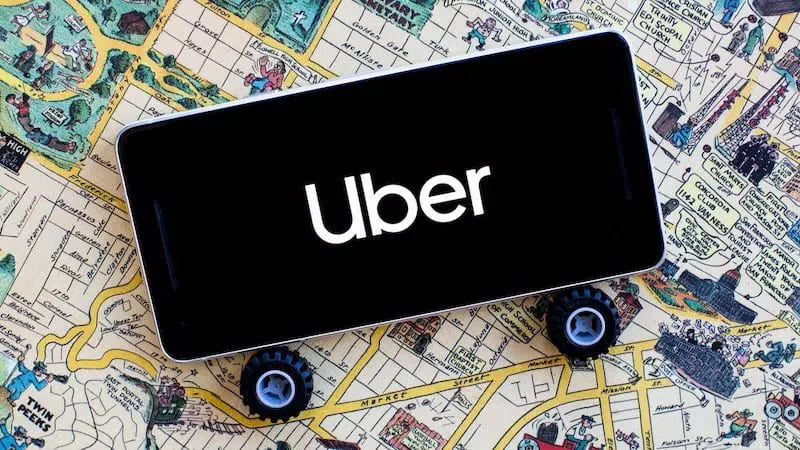A Bruxellesa small group of protesters and gig economy workers protested and asked European Union politicians not to “let Uber make the law”. Their mission is clear: to express dissent towards politicians who discuss the future of gig economy European. And according to the protesters, they only listened to Uber’s lobbying efforts.
Workers protest in Brussels: “don’t let Uber make the law”
Armed with a banner with the writing “Don’t let Uber make the law”the crowd decided to bring their own anger under the eyes of the institutions. This act of protest aims to highlight the concerns of the workers delivery platforms regarding their working conditions. But also how, according to workers’ representatives, the Brussels institutions are listening more to the lobbying of platforms like Uber (but not only) rather than to the needs of those who work.
The problems for gig economy workers
As reported by Wired.com, there are some among those present Camille Peeters, Marcus Haunold e Felipe Corredorcoming respectively from Belgium, Austria e Spain. Despite working for different companies, their common experience in the delivery sector for some of the most well-known platforms in Europe led them to the same conclusion. “Something has to change, because the current situation is really bad for the majority of platform workers,” explains Haunold.
Marcus Haunold, who spent five years working for Foodora in Vienna, highlights the challenges of working for the company (but not as an employee) in Austria. He claims he doesn’t receive paid sick leave until the third day of illness and is not entitled to holiday allowance. Due to these difficulties, Haunold found himself forced to work for another platform as well, Wolt, to make ends meet. The company disputes that conditions for workers are worsening, pointing out that it has increased hourly wages by 10% since January.
But his is just one example: the protest in front of the European institutions challenges the business model of delivery and transport companies such as Foodora or Uber, asking for greater protections for those who work. People who are not hired as employees, although they collaborate continuously.
European regulations

Hopes for improvement for workers in this sector were first raised when two years ago the EU officials have proposed new rules for regulating the gig economy through the Platform Work Directive. However, internal struggles between European officials and external influences, especially those traceable to Uberhave undermined workers’ optimism.
In Europe, the lobbying it is regulated for companies and associations that want to make their reasons heard by the institutions. But the protesters think that Uber’s contacts in the EU can shape the new rules for platform jobs to your advantage.
As Wired points out, the EU expects that further 40 million of residents will work for digital platforms by 2025: they would be the fifth largest country in Europe by population if they were a state. Find new rules to ensure greater clarity on employment status of platform employees becomes fundamental. But the fear is that the influence in Brussels of companies like Uber could undermine the balance between the interests of the platforms and the rights of workers.
Il lobbying di Uber

According to official data reported by the EU, in 2022 Uber spent between 700,000 and 799,000 euros on lobbying in Europe, the 404th company in Brussels. But Wired reports that the company has provided funding for research into platform workers, participated in industry associations through UberEats and signed a letter with four other companies to the Financial Times. Added to this are advertisements about Uber’s positive impact on the European economy on social platforms. The Protestants think that all this public relations work could have an impact on EU decisions.
The risk for Uber is that the new European rules change the classification of workers. Some European parliamentarians would like that were treated as employees, unless the platforms can prove otherwise. This would give access to a series of protections: sick days, protection from unfair dismissal, maternity and paternity leave, protections against discrimination.
Other MPs would like the workers to demonstrate a series of criteria before having these protections. Also out of fear of response from the platforms: when a law forced riders to be hired directly in Spain, Deliveroo closed operations in the country. And many commentators have declared the measures ineffective, with some companies simply changing contracts to stop hiring workers.
Protestants are calling for clearer rules on minimum wages, maximum hours and contractual protections. And they fear that Brussels takes the words of the platforms more into consideration than their needs. It remains to be seen who, in the endthey will listen to politicians.















Leave a Reply
View Comments